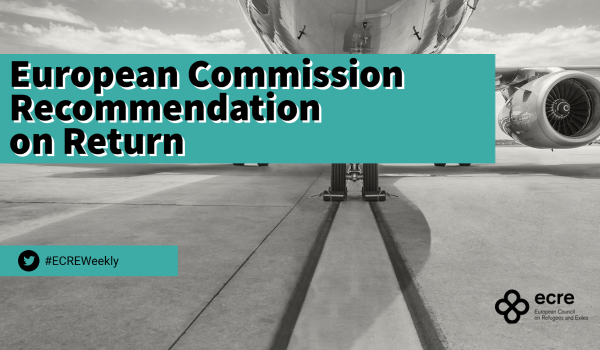On 16 March 2023, the European Commission presented a Recommendation on the mutual recognition of return decisions and expediting returns when implementing the Return Directive. It is the second initiative on return policy this year after the January policy document, ‘Towards an operational strategy for more effective returns’, and its annex detailing specific actions points.
The Recommendation aims to support a ‘faster, seamless migration process’ with links between asylum and return – both in terms of issuing return decisions with or at the same time as any application for protection is rejected, but also establishing cooperation between asylum and return authorities.
In the Recommendation, the mutual recognition of asylum decisions is seen as a steppingstone towards a common EU system for returns. The legal basis for mutual recognition has been there since a 2001 Council Directive but is little used. Recent developments that came into force in March this year for the Schengen Information System, mean that Member States can now enter an alert when a return decision is issued, including fingerprints, enabling other Member States to better identify when a migrant already has a return decision issued against them, and to cooperate.
There are also concrete measures included for actions near external borders, where Member States are encouraged to have mobile support teams including all agencies that support voluntary and forced returns close by. In addition to concrete suggestions on alternatives to detention, it is also suggested that Member States ensure there are ‘adequate facilities’ close to borders to host third-country nationals, including families with children, pending return.
Possibilities for lodging appeals should be provided (at the same time or within the same time frame as the asylum decision, before the same court or tribunal). There is no information on how appeals against a decision from a different EU Member State shall be conducted. Automatic suspension of the execution of return decisions should be provided to the extent necessary to comply with the Charter of Fundamental Rights. Member States are also encouraged to ensure legal remedies can be exercised from a third country, through legal representation and tools such as videoconferencing.
Voluntary departures and returns are to be encouraged including through considering not issuing entry bans where individuals enrol into assisted voluntary return and reintegration programmes. There should also be easily accessible and practical procedures to appeal or shorten entry bans where a person leaves a Member State within the voluntary departure period.
Finally, on the risk of absconding, there should be objective criteria for its assessment; alternatives to detention to match different levels of risk and individual circumstances; and detention should be used as a measure of last resort and for as short a period as possible.
For further information:
- ECRE, Policy Note, Monitoring the Implementation of Returns: A Complex Puzzle with Missing Pieces, 2022
- ECRE Factsheet: Asylum Statistics and the Need for Protection in Europe, 2022
- ECRE Policy Note, A Seamless Link? 2021
This article appeared in the ECRE Weekly Bulletin. You can subscribe to the Weekly Bulletin here.

